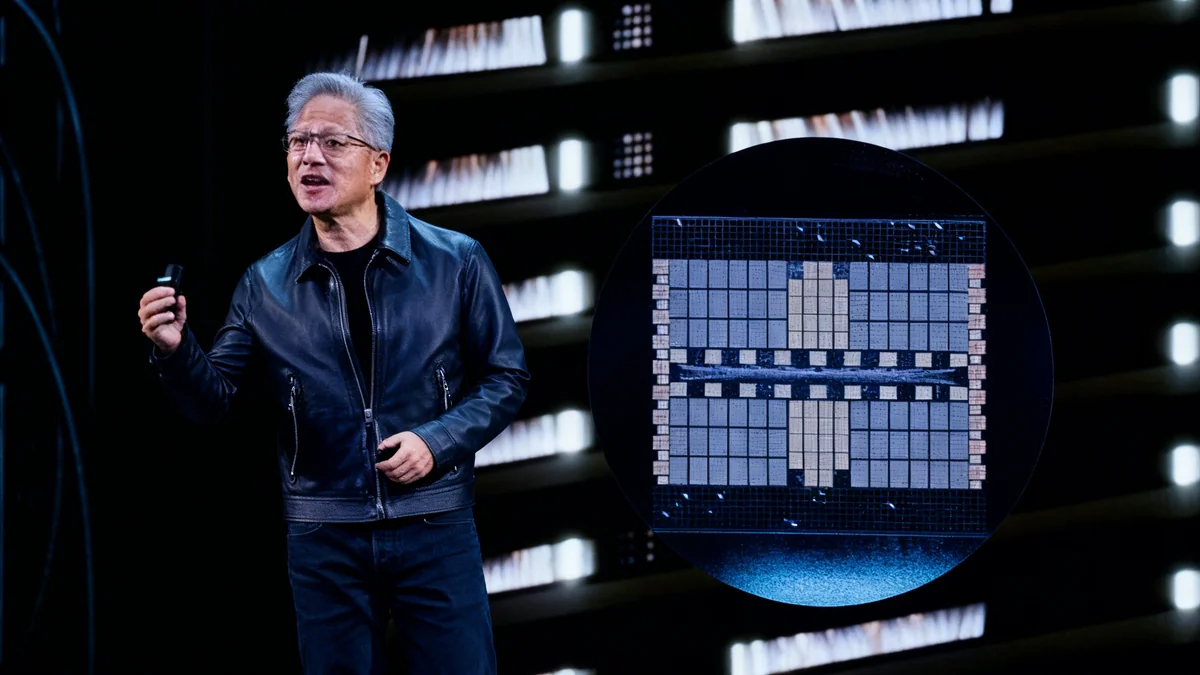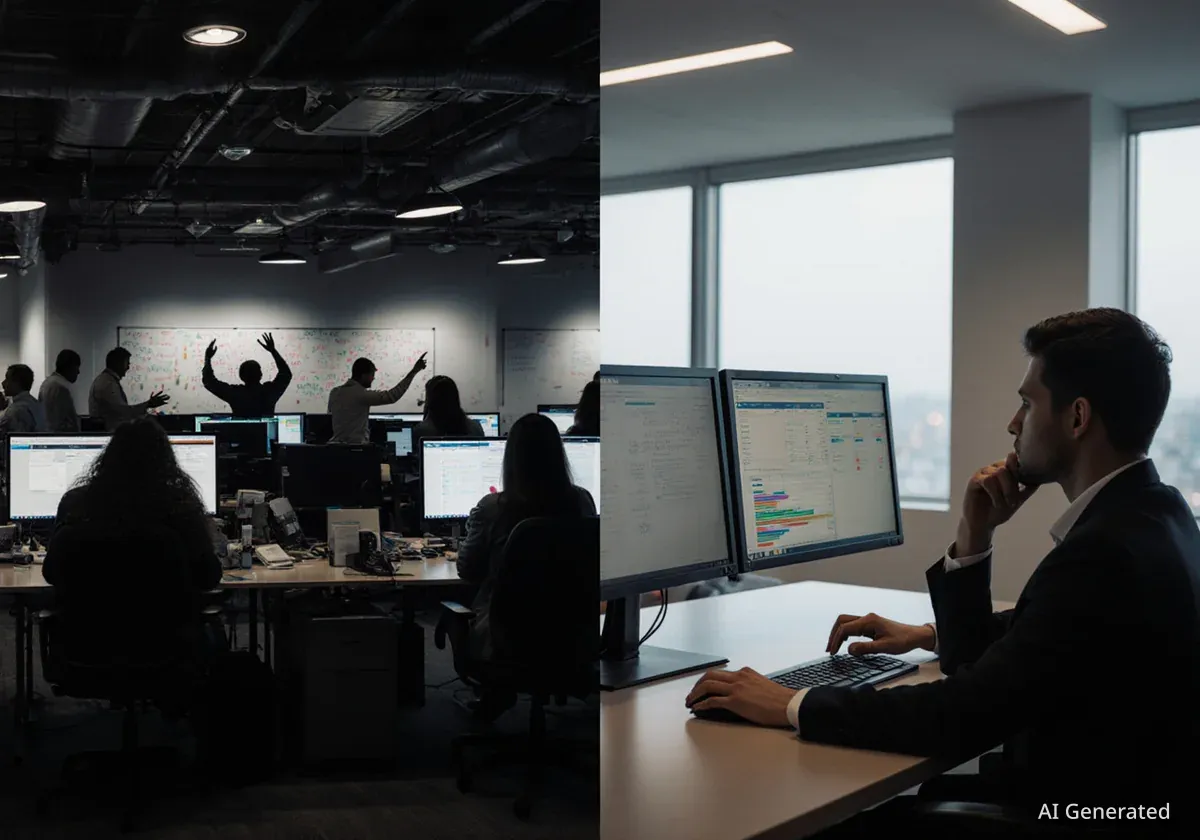Chinese technology company Alibaba has announced a three-year, $53 billion investment plan to significantly expand its global artificial intelligence infrastructure. The initiative aims to establish a network of AI-focused data centers across Europe, Latin America, the Middle East, and Southeast Asia, but faces major hurdles due to ongoing US restrictions on advanced semiconductor technology.
Key Takeaways
- Alibaba has committed $53 billion over three years to build a global network of AI data centers.
- The expansion targets new facilities in the Netherlands, France, and Brazil, among other regions.
- The plan is challenged by US export controls that prevent Chinese firms from acquiring high-performance Nvidia GPUs.
- Alibaba may rely on its homegrown T-Head chips as an alternative to restricted US technology.
- The company also released its new open-source multimodal AI model, Qwen3-Omni, to attract global developers.
A Global Blueprint for AI Dominance
Alibaba revealed its ambitious strategy at the Apsara conference in Hangzhou, China. According to reports from Reuters, the $53 billion investment is earmarked for building new AI-centric data centers over the next three years. This move is designed to position Alibaba Cloud as a major competitor in the global AI infrastructure market.
The company plans to establish its first data centers in the Netherlands, France, and Brazil. This expansion will also include new facilities across the Middle East and Southeast Asia, regions experiencing rapid growth in digital services.
Existing Infrastructure
Alibaba Cloud already operates a significant global network, with 91 availability zones spread across 29 regions worldwide. This includes existing European facilities in London and Germany.
Dr. Feifei Li, a database researcher at Alibaba, stated that the expansion is a direct response to customer demand. "Our strategic expansion of global infrastructure is designed to cater for the accelerating demand from forward-thinking customers," Li said in a statement.
Competing in a Crowded Market
Alibaba's push into the global AI market is not just about hardware. The company also detailed the latest version of its large language model, Qwen3-Omni. This model can process a combination of text, images, audio, and video, positioning it as a versatile tool for developers.
Crucially, Qwen3-Omni is available under an Apache 2.0 open-source license. This strategy could attract companies hesitant to commit to the proprietary ecosystems of competitors like OpenAI's ChatGPT. By offering an open alternative, Alibaba aims to foster a broad developer community around its technology.
To further incentivize adoption, Alibaba is offering significant resources to developers. This includes up to 2 billion free tokens on its Model Studio platform and cloud credits worth as much as $120,000 for qualifying projects. The goal is to encourage companies to build and scale AI applications using Alibaba's infrastructure.
"The international competition for dominance in the GenAI space has been heating up in the model arena... The move by Alibaba is going to see a similar competition across providers of infrastructure for AI tooling and systems," said Neal Riley, AI Innovation Lead at The Adaptavist Group.
The GPU Challenge and Homegrown Solutions
The most significant obstacle to Alibaba's global ambitions is the restriction on accessing high-performance graphics processing units (GPUs). AI data centers rely heavily on GPUs, with Nvidia's products considered the industry standard. However, as a Chinese company, Alibaba is barred by Washington from purchasing Nvidia's most advanced chips.
This has forced Chinese tech giants to seek alternatives. One potential solution for Alibaba is its own homegrown T-Head chip. While details are limited, reports suggest the T-Head is designed to be a competitive alternative to Nvidia's H20 chip, which is an export-compliant version made for the Chinese market.
The US-China Chip Dispute
The United States government has implemented strict export controls to limit China's access to advanced semiconductor technology, citing national security concerns. These rules specifically target high-end GPUs essential for training large AI models. This has led to a complex situation where US companies like Nvidia develop less powerful, export-approved chips for China, while the Chinese government encourages domestic firms to develop and use their own silicon.
It remains unclear whether Alibaba's new European data centers will be equipped with its own T-Head chips or if it can source other GPUs not subject to US restrictions. This decision will be critical to its ability to compete on performance with rivals like Amazon Web Services and Microsoft Azure, which have access to top-tier Nvidia hardware.
Navigating Geopolitical and Regulatory Hurdles
Beyond the hardware supply chain, Alibaba must navigate a complex landscape of data sovereignty and regulatory scrutiny. European governments and customers are increasingly concerned about where their data is stored and who can access it. This concern applies to both US and Chinese cloud providers.
The European Union's Foreign Direct Investment (FDI) protocols could pose a challenge. These regulations allow the EU to review foreign investments in critical infrastructure, which includes data centers. However, Alibaba may bypass this scrutiny by partnering with existing data center operators.
For example, its first facilities in Germany are located within Vodafone's data centers. This model allows Alibaba to lease capacity rather than build from the ground up, placing the burden of land, power, and regulatory approval on the local partner.
The UK's Position
Notably, the United Kingdom was not mentioned in Alibaba's new expansion plans, despite being the location of one of its existing European data centers. A spokesperson for the UK's Department for Science, Innovation and Technology (DSIT) emphasized the country's stance on such infrastructure.
"Whilst we would not speculate on possible investments, datacenters are now regulated as critical national infrastructure. Government can step in to review any investment deal from any country if it might affect national security," the spokesperson said. This statement highlights the high level of government oversight that any future data center investment in the UK would face.





